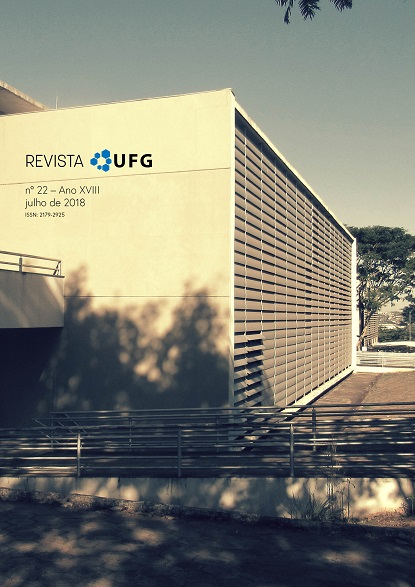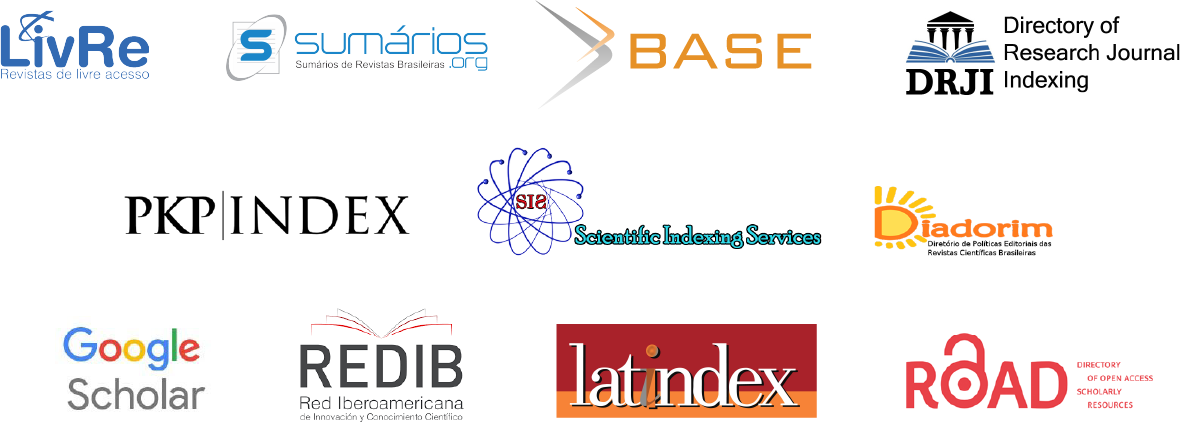The implementation of the European system in Africa
a new framework for thinking about education and training policies
DOI:
https://doi.org/10.5216/revufg.v18i22.51225Abstract
The LMD system stands for Bachelor-Master-Doctorate. It aims to harmonize the design of education with African countries in order to facilitate student and teacher mobility on the one hand, and to develop inter-university cooperation on the other. This system was implemented at the University of Lomé in 2009. The University of Lomé is the largest university in Togo, a country located in West Africa. The aim of this paper is to analyze the implementation of the LMD system at the University of Lomé and then to present some criticisms made to the LMD system in general. This study is justified by the fact that the University of Lomé is not prepared to face this new system. The replacement of a national frame of reference by an international one leads to a change in the way of assembly of elites. The methodology employed was selective and descriptive literature review through Google Academic and SCIELO databases between the years 2000 and 2015, in papers whose keywords contained in French "Système LMD" and articles related to higher education in Brazil. Thus, a total of 10 articles were selected and will be discussed here. As a result, it can be seen that the LMD system at the University of Lomé is an advantage for higher education, but for logistical, financial and human reasons the system finds it difficult to develop as in Europe. The positive side of this system in African countries is that it allows elites to reach the same international standards as foreign universities, but this requires investment from African governments to avoid chaos.
Downloads
References
ACTU-DROIT. Une étude sur le système LMD. Disponível em:<http://www.actudroit.ml/2017/03/une-etude-sur-le-systeme-lmd_17.html.>. Acesso em 27/11/2017.
BEUGELSDIJK, S.; CORNET, M. ‘A Far Friend is Worth More than a Good Neigh-bour’: Proximity and Innovation in a Small Country. Journal of Management and Govern-ance, v. 6, n. 2, p. 169-188, 2002.
BOLTANSKI, L. Une sociologie sans société? Le genre humain, Paris: Hiver-Printemps, 1999, p. 303-311.
CERTEAU, M. L’invention du quotidien: Les arts de faire. Paris: Gallimard, 1993.
CUNHA, L. A. Qual universidade? São Paulo: Cortez, 1989.
DARRAS. Le partage des benefices. Paris: Éditions de Minuit, 1969.
DEROUET, J. L. Entre la récupération des savoirs critiques et la construction des standards du management libéral. Revue française de pédagogie. Paris: E.N.S. Éditions, v.154, p.5-18, 2006.
_____. (Dir.). Le collège unique en questions. Paris: PUF, 2002.
DEROUET-BESSON, M. C. La ruse des petits, la sainteté des grands et la critique sociale. Éducation et Sociétés. Revue internationale de sociologie de l’éducation. Paris: E.N.S. Édi-tions, v.16, p. 227-237. 2005.
DUBET, F.; DURU-BELLAT, M. L’hypocrisie scolaire. Pour un collège enfin démocrati-que. Paris: Seuil, 2000.
HÉLOU, C. Ordre et Résistance au college, Thèse de Doctorat nouveau régime, sous la di-rection de Luc Boltanski, Paris: EHESS, 1994.
HIRSCHMAN, A. O. Exit, Voice and Loyalty: Responses to Decline in Firms, Organiza-tions, and States. Cam¬bridge, MA: Harvard University Press, 1972.
ICILOME. Bientôt le premier bilan du système LMD. Disponível em < http://news.icilome.com/?idnews=829334&t=universite-de-lome--bientot-le-premier-bilan-du-systeme-lmd> Acesso em 04/09/2017.
INSUA. Amélioration de la qualité d’apprentissage dans les écoles rurales africaines. In: Edu-cation de base. Banque mondiale. Lusaka: UNESCO, 1998.
MENDONÇA, Erasto Fortes. A regra e o jogo: democracia e patrimonialismo na educação brasileira. Campinas: Ed. FE/UNICAMP, 2000.
LAVAL, C.; WEBER, L. (coord.). Le nouvel ordre éducatif mondial. Paris: Éd. Syllepses, 2003.
PAPESAC. Le système LMD et les enjeux de la professionalisation. Disponível em < http://www.papesac.org/docs/LMD_Professionnalisation.pdf>. Acesso em 04/09/2017.
RAYOU, P. La Cité des lycéens. Paris: L’Harmattan, 2000.
REESAO. Guide de formation du LMD: à l’usage des institutions supérieures d’Afrique francophone. Accra: Aviation Road Extension. 2008. 108 p.
ROCARE. Rapport Annuel 2009. Disponível em:<http://www.ernwaca.org/web/IMG/Rapport_Annuel_ROCARE_2009.pdf> Acesso em 04/09/2017.
TEIXEIRA, F. J. Gerenciando o conhecimento: como a empresa pode usar a memória orga-nizacional e a inteligência competitiva no desenvolvimento dos negócios. Rio de Janeiro: Ed. SENAC, 2000.
UEMOA. Pour une nouvelle vision de l’enseignement supérieur. Intégration, 2005.
UNIVERSITÉ DE LOMÉ. Portail Académique. Disponível em: <http://www.univ-lome.tg/ >. Acesso em 10/09/2017.
Downloads
Published
How to Cite
Issue
Section
License
Revista UFG uses the Creative Commons CC-BY (4.0) - Attribution 4.0 International license for open access journals (Open Archives Initiative - OAI) as a basis for transferring rights.
Authors who publish in this journal agree to the following terms:
1) Authors may distribute, remix, adapt and build upon their work, even for commercial purposes, as long as they give UFG proper credit for the original creation. Authors may copy and redistribute the material in any medium or format.
2) Authors are allowed and encouraged to publish and distribute their work online (e.g., in institutional repositories or on their personal page) at any point before or during the editorial process, provided that reference is made to the place of publication origin, that is, the electronic address/reference of Revista UFG.
3) The authors of works published in Revista UFG are expressly responsible for their content.
4) All works submitted to Revista UFG that have images, photographs, figures in their body must be accompanied by a term of assignment of copyright of the author, of the participating member of the image and, in the case of children, of the relatives of the exposed children , with their data and signature.
Access the IMAGE USE AUTHORIZATION TERM document here.










